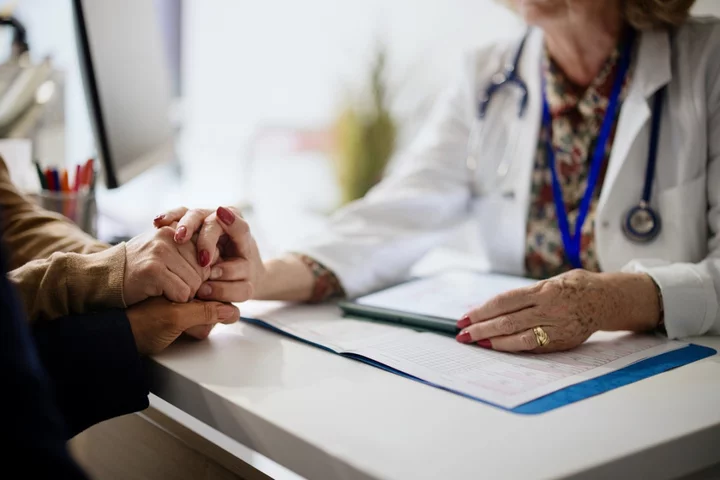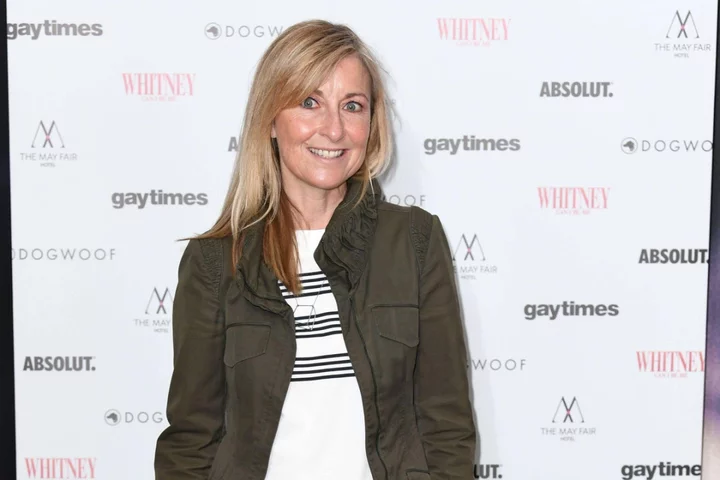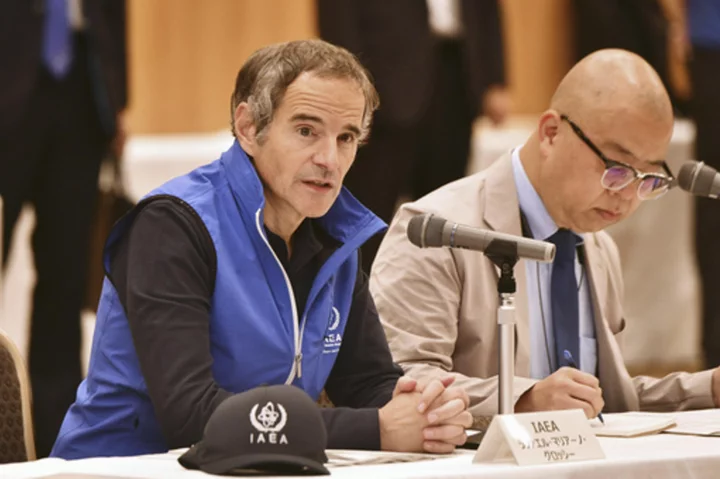
The shared symptoms of menopause and young onset dementia
Dementia UK and The Menopause Charity have published advice on the crossover symptoms of both young onset dementia and menopause, after former TV presenter Fiona Phillips disclosed her Alzheimer’s diagnosis. The shared symptoms mean that it is difficult for some women to spot the signs of dementia and Alzheimer’s, and instead mistake those symptoms for menopause. It comes as Phillips has revealed that she has been diagnosed with Alzheimer’s, the most common type of dementia, at the age of 62. The former breakfast TV presenter first noticed symptoms of “crippling anxiety” and “brain fog”, but since Phillips had not experienced this before, she and her family thought it might be menopausal symptoms. After undergoing Hormone Therapy Treatment (HRT) to alleviate her menopausal symptoms, Phillips’s brain fog remained. This prompted Phillips and her husband to seek further help, including months of cognitive tests before a lumbar puncture to assess spinal fluid revealed she had Alzheimer’s. Dementia is an umbrella term for a range of progressive conditions that affect the brain, while Alzheimer’s is a specific disease. Paul Edwards, Director of Clinical Services at Dementia UK, said in a statement that many people are unaware of the shared symptoms of the conditions. “For some women, dementia and Alzheimer’s symptoms may develop at the same time as the perimenopause or menopause which can bring additional challenges when it comes to seeking a diagnosis,” he explained. Dementia UK and The Menopause Charity have worked together to create an information leaflet on the similarities and differences between young onset dementia and menopause and perimenopause. While dementia is most common in people over the age of 65, an estimated 70,800 people in the UK are living with young onset dementia, where symptoms begin before 65. Common menopause symptoms include changes in periods, hot flashes, fatigue, mood changes, anxiety, stress, brain fog, vaginal dryness and more. Brain fog is a very common menopause symptom, and women often say that their brains feel like “cotton wool” while experiencing it. The symptom can make it difficult to recall words, complete multiple tasks or find themselves losing things. This can affect concentration, word-finding, memory and multitasking, impacting their emotions and overall well being day to day. Since these symptoms may also occur in dementia, some women become concerned that they are showing signs of young onset dementia. According to Dementia UK, though, brain fog is not typically the first symptom of dementia, so there are other initial signs to be aware of if you are concerned about dementia or Alzheimer’s. Early signs of dementia are more likely to be changes in vision and spatial awareness, language problems and changes in behaviour. It is typical that family members, friends and work colleagues may notice these changes first, often before the person themselves. Both Dementia UK and The Menopause Charity advise that because it is difficult to know what these symptoms are being caused by, it is important to see a GP to address any concerns. For more information, you can access an information leaflet produced by both charities here. If you would like to speak to a dementia specialist Admiral Nurse about young onset dementia and perimenopause or menopause, or any other aspect of dementia, can call our free Helpline on 0800 888 6678 or by emailing helpline@dementiauk.org. Read More Fiona Phillips, 62, reveals she has Alzheimer’s disease Fiona Phillips explains why she hid Alzheimer’s diagnosis from her children Woman exits plane after tirade about passenger who is ‘not real’: ‘Final Destination vibes’ Fiona Phillips Alzheimer’s diagnosis at 62: 7 ways to reduce your risk Fiona Phillips explains why she hid Alzheimer’s diagnosis from her children Fiona Phillips, 62, reveals she has Alzheimer’s disease
2023-07-05 18:50

New Found Intercepts 14.5 g/t Au Over 27.8m, 9.7 g/t Au Over 20.3m, 34.6 g/t Au Over 5.3m, 39 g/t Au Over 4.3m & 33 g/t Au Over 4.8m at Iceberg
VANCOUVER, British Columbia--(BUSINESS WIRE)--Jul 5, 2023--
2023-07-05 18:45

Fiona Phillips Alzheimer’s diagnosis at 62: 7 ways to reduce your risk
TV presenter Fiona Phillips has revealed she has been diagnosed with Alzheimer’s disease at the age of 62. The presenter and Daily Mirror columnist said the disease has “ravaged” her family and she had long feared being given the diagnosis. According to the Mirror, Phillips was diagnosed more than a year ago and is undergoing trials for a new drug that could slow the effects of the disease. Phillips, who is an Alzheimer’s Society ambassador, told the Mirror: “This disease has ravaged my family and now it has come for me. “And all over the country there are people of all different ages whose lives are being affected by it – it’s heartbreaking. “I just hope I can help find a cure which might make things better for others in the future.” As well as her column in the national newspaper, Phillips anchored GMTV for more than a decade from 1997. She also competed in the BBC’s Strictly Come Dancing in 2005. She is married to Martin Frizell, editor of ITV’s flagship programme Good Morning Britain. Phillips told the Mirror that, despite fearing she would one day be diagnosed with Alzheimer’s, the news was still a “gut-punching, shuddering shock”. The presenter said she feels “more angry than anything else” due to the disease having already affected her family life. “My poor mum was crippled with it, then my dad, my grandparents, my uncle. It just keeps coming back for us,” she said. Though she previously kept the news private, Phillips said she has decided to share her story to help end the stigma around Alzheimer’s. “There is still an issue with this disease that the public thinks of old people, bending over a stick, talking to themselves,” she said. “But I’m still here, getting out and about, meeting friends for coffee, going for dinner with Martin and walking every day.” She is taking part in clinical trials at University College Hospital in London, which aim to revolutionise future treatment. Hilary Evans, chief executive of Alzheimer’s Research UK, said: “We’re sending our love and support to Fiona and her family following her announcement that she’s living with Alzheimer’s disease. “Fiona’s been a friend of Alzheimer’s Research UK for well over a decade, and her support has shone such a valuable spotlight on the importance of research in overcoming the diseases that cause dementia. “There are around 70,800 people with dementia in the UK who, like Fiona, are under 65 and we’re determined to find a cure to end the heartbreak it causes.” It is thought at least five in every 100 people with Alzheimer’s are under 65. Though this figure may be higher, as it can be more difficult to get an accurate diagnosis at a younger age. So, is there anything you can actually do to help prevent dementia? 1. Stop drinking fizzy drinks Drinking too much coke or lemonade could increase your chances of developing dementia. People who consume the highest amounts of ultra-processed foods, like fizzy drinks and chocolate, may have a higher risk of developing dementia than those who eat the lowest amounts, a study by Huiping Li, of Tianjin Medical University in China, published in the Neurology journal, has indicated. 2. Say no to UPFs Sadly, lots of our go-to ingredients like sausages, ketchup and baked beans are highly processed, making them a risk-factor if consumed too frequently. Li, the author of the study, said: “These foods may also contain food additives, or molecules from packaging or produced during heating, all of which have been shown in other studies to have negative effects on thinking and memory skills. “Our research not only found that ultra-processed foods are associated with an increased risk of dementia, it found replacing them with healthy options may decrease dementia risk.” 3. Reduce your treats Too much chocolate and things like biscuits aren’t good for you, because they are highly processed and sugary. In fact, according to the study, for every 10% increase in daily intake of ultra-processed foods, people had a 25% higher risk of dementia. So, even just having a few extra biscuits or chocolates at work each day can heighten your risk. 4. Keep moving We all know being slumped at a desk, staring at a screen all day, isn’t great for your health, but it turns out sedentary jobs actually increase your risk of getting dementia. Dr Sara Imarisio, head of strategic initiatives at Alzheimer’s Research UK, said: “Our brains are incredibly complex, responsible for our memory, as well as what we think, feel and do. “Keeping our brains healthy as we age can help stave off diseases like Alzheimer’s, which physically attack brain cells, tearing away at the very essence of who we are. “We know that being physically and socially active can help us feel happier, healthier and more positive in general. “Lifting weights and running marathons aren’t for everyone, but there are many ways that we can stay physically active in our lives.” Noting more research published in the Neurology Journal, by Huan Song of Sichuan University in China, Imarisio continued: “This self-reported study adds to evidence that finding something you can stick to, that keeps you physically and socially active, is likely to have the greatest benefit to your health, rather than the activity itself. “The researchers found that even people with a high genetic risk for Alzheimer’s, the most common cause of dementia, could benefit from keeping physically active.” 5. Make an effort to see family and friends Social interaction is a really important way to keep your brain sharp and reduce your risk of dementia. If you avoid it, you are risking your health. According to Song’s research, people who were highly engaged in activity patterns, including frequent exercise and daily visits of family and friends, had 35% and 15% lower risk respectively, compared with people who were the least engaged. 6. Do the chores According to the same study, carrying out household chores is associated with a 21% reduced risk of dementia. Perhaps just increasing your brain activity a little, even just by washing up or changing your sheets, can help keep your mind active. 7. Play an instrument According to several studies, musicians are 64% less likely to develop mild cognitive impairment or dementia. So, if you’ve ever fancied playing the piano, guitar or ukulele, now’s the time – it’s never too late to learn something new. Read More Charity boss speaks out over ‘traumatic’ encounter with royal aide Ukraine war’s heaviest fight rages in east - follow live 7 popular destinations that will soon be in London’s ULEZ Kate’s best Wimbledon looks, as she steps out in retro outfit for the tennis How tennis could be harming your body – and why it does you good
2023-07-05 18:26

Anker PowerHouse: The Reliable Solution to South Africa’s Load-Shedding Crisis
CAPE TOWN, South Africa--(BUSINESS WIRE)--Jul 5, 2023--
2023-07-05 17:58

Fiona Phillips explains why she hid Alzheimer’s diagnosis from her children
Fiona Phillips has explained why she temporarily hid her Alzheimer’s diagnosis from her two sons. The former breakfast TV presenter, 62, was told she had the condition 18 months ago after she experienced symptoms of anxiety and brain fog, and has since disclosed her diagnosis to the public. Phillips, who is currently taking part in a drug trial that scientists hope could revolutionise the treatment of the incurable illness, said she was speaking out about her diagnosis in a bid to end the stigma surrounding Alzheimer’s. The journalist, best known for presenting the ITV Breakfast programme GMTV Today, toldThe Mirror that she was reluctant to tell her two sons, Nat, 24, and Mackenzie, 21 – who she shares with her husband, This Morning boss Martin Frizell – about her condition. “I just didn’t want to make a big thing out of it where we all sit down as a family and announce we’ve got something to tell them,” she said, “And I was worried they might be embarrassed in front of their friends or treat me in a different way. And it’s not like I’m doing anything out of character.” Phillips, who took part in BBC’s Strictly Come Dancing in 2005, shared that she and Frizell had blood tests to check whether their children could inherit the disease. “We wanted to know in case we needed to prepare the boys to make some difficult decisions later in life”, Frizell told the publication. “When the results came back as negative it was a huge moment – such an enormous sense of relief. There’s no Alzheimer’s on my side of the family and thank goodness it seems the boys have not inherited from Fiona’s side of the family.” The mother-of-two has now spoken out about the realities of the condition. “There is still an issue with this disease that the public thinks of old people, bending over a stick, talking to themselves,” Phillips said. The presenter said that she is no longer allowed to drive but walks each day: “I’m still here, getting out and about, meeting friends for coffee, going for dinner with [my husband] and walking every day.” The news comes as the Office for National Statistics said that dementia and Alzheimer’s disease were the leading cause of death in the UK in 2022. The couple began to notice something was wrong when she developed “crippling anxiety” towards the end of 2021. Since Phillips had not experienced this before, they thought it might be menopausal symptoms. “We got in touch with a menopause specialist who took her under their wing and put her on HRT but while that improved some symptoms, the brain fog remained,” Frizell said. This prompted the couple to seek further help, including months of cognitive tests before a lumbar puncture to assess spinal fluid revealed she had Alzheimer’s. Phillips is taking a new drug called Miridesap, which scientists hope could slow or even reverse the illness. The drug is administered three times a day with tiny needles and is being trialled by the University College Hospital (UCH) in London. Phillips has no idea if she is among the cohort reviewing a placebo or not but still believes that partaking in the trail is important for eventually finding a cure for the disease. “Even the people we see for the check ups don’t know if Fiona is on the real drug or a placebo,” Frizell said. “It’s been weeks now and I like to think her condition is stabilising but I am too close to know really, that could just be my wishful thinking.” Read More Fiona Phillips, 62, reveals she has Alzheimer’s disease Woman exits plane after tirade about passenger who is ‘not real’: ‘Final Destination vibes’ Jay-Z’s mother Gloria Carter ‘marries longtime partner Roxanne Wilshire’ Fiona Phillips, 62, reveals she has Alzheimer’s disease This is how Novak Djokovic is preparing to win Wimbledon How tennis could be harming your body – and why it does you good
2023-07-05 15:57

Ice-T warns modern hip-hop needs to 'get a hold of itself'
Ice-T has called on the current generation of hip-hop artists to "get a hold" of themselves following a string of tragic losses.
2023-07-05 15:26

Australian Labor Government Approves First Thermal Coal Mine
Australia has approved its first thermal coal project since Prime Minister Anthony Albanese came to power, drawing criticism
2023-07-05 15:25

Fukushima: Anxiety and anger over Japan's nuclear waste water plan
Japan wants to release Fukushima's waste water into the ocean - and a lot of people are not happy.
2023-07-05 13:54

IAEA chief visits Fukushima before radioactive water is released
The United Nations nuclear chief is visiting Japan’s tsunami-wrecked nuclear power plant after the agency affirmed the safety of a contentious plan to release treated radioactive water into the sea
2023-07-05 11:59

This Airline Will Rent Out Clothes So You Can Travel Baggage-Free
Tourists and business travelers to Japan will soon be able to show up with little more than the
2023-07-05 11:46

Japan will soon release Fukushima radioactive water into the ocean. How worried should we be?
Japan will soon begin releasing treated radioactive water into the ocean following approval from the United Nations' nuclear watchdog for a controversial plan that comes 12 years after the Fukushima nuclear meltdown.
2023-07-05 11:23

HSBC Tests Quantum Tech in London to Guard Against Future Hacks
HSBC Holdings Plc will become the first British bank to test an advanced data-security system being run by
2023-07-05 08:45
